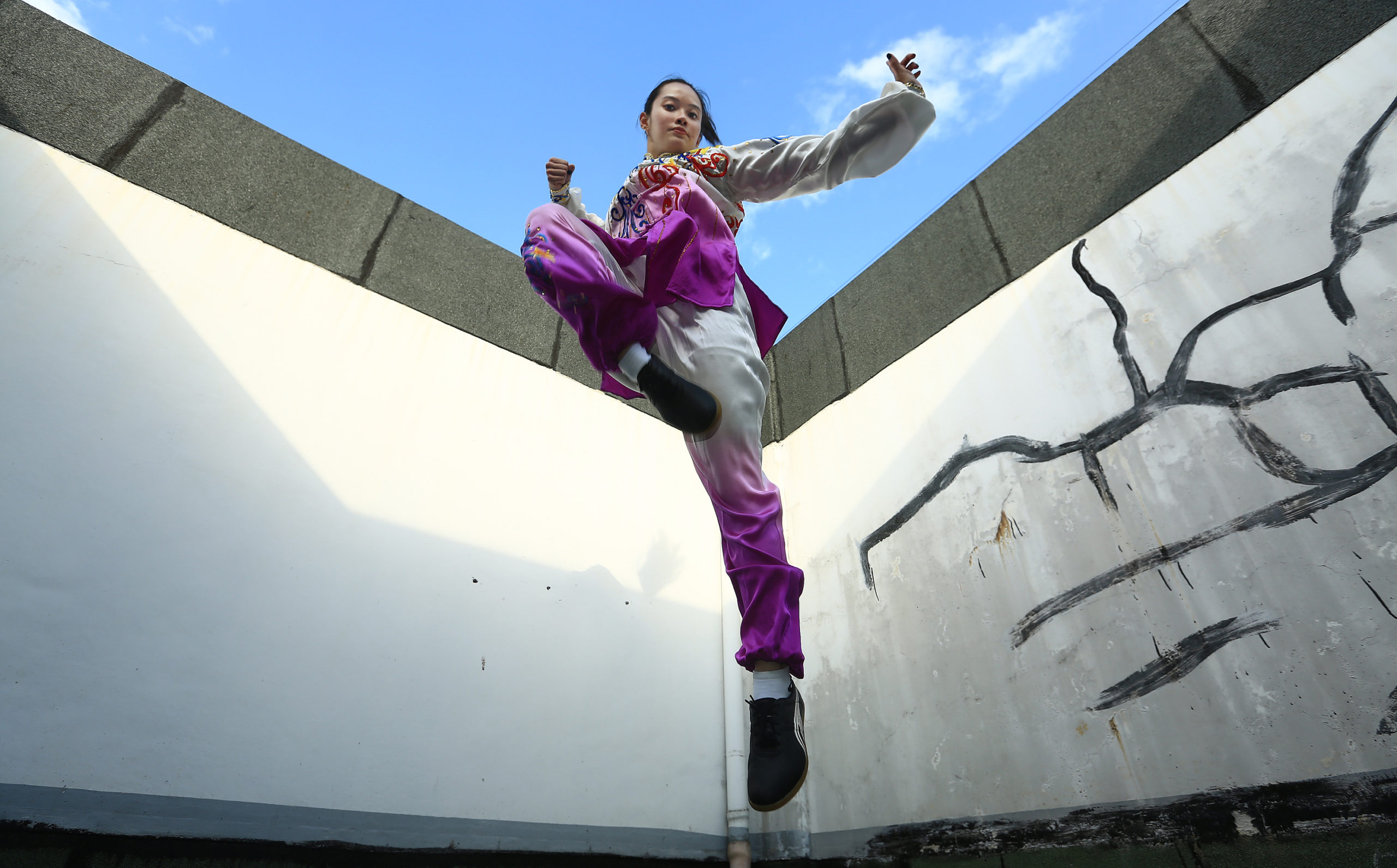AGATHA Wong laughed off the misconception that she wanted to take an entire year off from wushu after winning two gold medals in the Southeast Asian Games last December.
“I didn’t say the whole year,” she said. “When I said I wanted to hibernate, I meant maybe a month or so.”
It was easy to mistake her hibernation plans to be a long-term one. The willowy wushu wonder woman had been in a fragile state for almost two years, starting from when she competed in the 2018 Asian Games in Jakarta while dealing with back and knee injuries.
Stubborn competitors may sometimes compensate for these injuries by shifting pressure elsewhere on their bodies. For Wong, however, those injuries were on parts of her body that served as main pressure points when she competes in both the taijiquan and taijijian events for wushu.
Those who watched her as she folded and unfurled herself to and from poses would wince at the pressure she applied on her knee and back. And that’s without being able to relate to the slipped disc and tendinitis that she had to deal with.
The pain of those injuries returned for her second event in the SEA Games. And to top it all, she was dealing with cramps, too.
But nothing broke Wong. The 21-year-old product of St. Benilde simply pushed her way to the gold.

SEA Games Wushu gold medalist Agatha Wong shows her winning form during her visit at PDI office. EDWIN BACASMAS
“My [back] injury [happened] in 2018, before the Asian Games, before I flew to Jakarta,” Wong said. “I was diagnosed with a slipped disc. And since 2012 I’ve been suffering tendinitis in my right knee. On top of all that, we still continue training.”
Her love for wushu is at the heart of her being unbreakable.
“I just really like wushu and I actually like giving myself a hard time every day,” she said.
Wong started with the sport when she was eight, along with other disciplines like ice skating, swimming and karate too. She was also into ballet. Four to five years later, however, there was something about wushu that made Wong drop all other activities—and her social life—for the Chinese martial art known for its defense training and health benefits.
“It’s a sport where you have to continuously learn every day,” Wong said. “It’s not like when you get to this high of a level, like for example level 10, you stop learning. When you get to my age, after 18 years old, when you have to make your own form … in international competitions, you start to learn a lot more forms that you didn’t know existed.”
When Wong talks about wushu, it becomes clear that she has become the poster athlete of a discipline that used to ride on the popularity of hardened warriors like former national athlete and current mixed martial arts star Eduard Folayang.
“It’s really, really beautiful,” Wong said. “Like, we have the mantis, we have drunken fist, drunken sword, nunchucks, [and] there’s taichi fan. It’s a really traditional sport and a really beautiful sport.”
And that beauty, and her love for it, is what drives her to play past pain—more than sporting glory.
After being diagnosed with a slipped disc, Wong needed medication to make the pain bearable.
“But after around less than a month, I stopped medication and ever since, I haven’t been drinking [medicines] anymore,” she said. “The days and weeks leading to the [SEA Games], I wasn’t taking any medication. I was just doing corrective exercises for my back. And whenever I train, I try to be mindful of my knee and my back. Sometimes, I have no choice but to tell my coach that it hurts already even if I don’t want to because I still want to push myself.”
“Athletes are like that. When the coach tells you ‘can you still go on?’ your automatic answer is ‘yes, I can still go on.”
She has learned to manage her body, though. “It is important to know the limits and boundaries of your body,” she said, recalling the time she over exerted her back to the point that she could no longer walk because of the pain.
And what she went through was probably why she was more relieved than happy when her SEA Games stint ended.
“Every time I compete I never cry. But I don’t know why [during the] SEA Games in Manila, I cried,” she recalled. “I was really crying and when PSC chairman Butch Ramirez congratulated me, shook my hand, he said ‘for God and country.’ That was when I realized that all my sacrifices were really for my God and my country. And that really made me break down in tears.”
Maybe that’s why her planned hibernation was misconstrued as taking a long break away from the sport. Because she deserves every bit of rest after what had been a challenging two years.
But this is Agatha Wong. And long breaks from wushu are impossible for Agatha Wong.
“Actually, when I go on vacations every December or January … I always feel like I don’t want to do wushu anymore. Like, the things I miss [out on] because of the sport, … maybe it’s not worth it.
“But when I return back to training, I just fall in love with it every day. So I’m like, hmm okay, I’ll just do wushu.”

